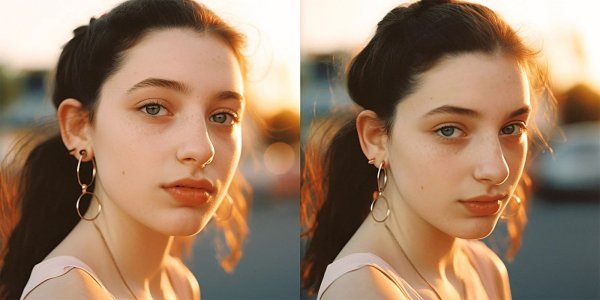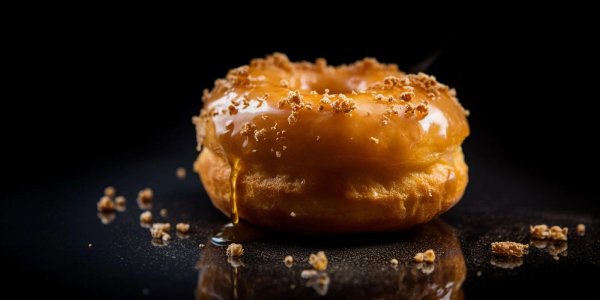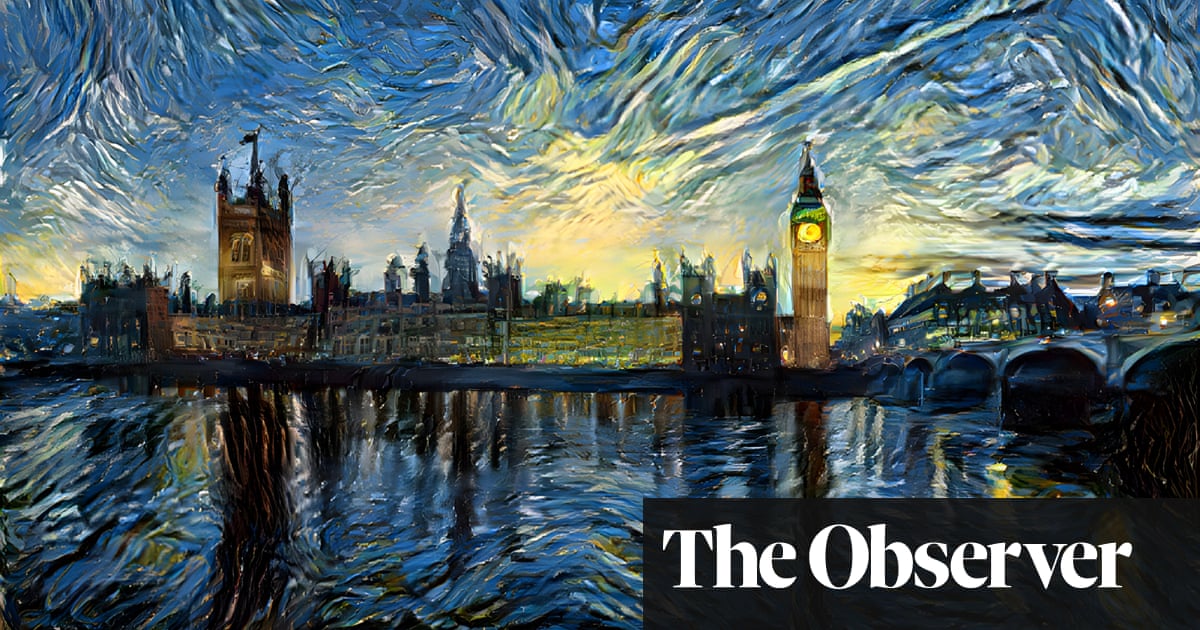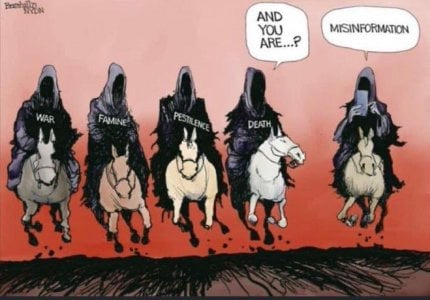RichC
Well-known
I've been reading about artificial intelligence (AI) "photographs" and how they will make photography redundant, especially for commercial use in, say, magazines and ads. I know there's been a few threads on AI and photography here, but the ubiquity and quality of AI image-making has evolved very fast since the the beginning of the year, but I wonder what we think of this new technology as it's clear that (a) it will kill off some areas of commercial photography and (b) photographs and photorealistic AI images will become impossible to tell apart.
Here's my brief summary.
The rise of synthographers...
AI will make photographers extinct: magazines are already starting to use photorealistic images created by feeding carefully written text descriptions into software. These virtual photographers have coined a new term for themselves: synthographers.
Synthographs are fast becoming indistinguishable in every way from digital photographs, and those with the skill to precisely visualise the AI image from the wording of the text input can create "photos" will take over from commercial photographers because the images are faster and cheaper to create, and will fulfil clients' needs better - the text can be quickly tweaked to create a multitude of variations, giving far wider choice to clients than traditional photography.
Example: Midjourney v5 Creates Photorealistic Images and Even Does Hands Correctly


Here's my brief summary.
The rise of synthographers...
AI will make photographers extinct: magazines are already starting to use photorealistic images created by feeding carefully written text descriptions into software. These virtual photographers have coined a new term for themselves: synthographers.
Synthographs are fast becoming indistinguishable in every way from digital photographs, and those with the skill to precisely visualise the AI image from the wording of the text input can create "photos" will take over from commercial photographers because the images are faster and cheaper to create, and will fulfil clients' needs better - the text can be quickly tweaked to create a multitude of variations, giving far wider choice to clients than traditional photography.
Example: Midjourney v5 Creates Photorealistic Images and Even Does Hands Correctly


Rayt
Nonplayer Character
They look really good. I can see traditional product, advertising, and other commercial photography facing AI competition. We are looking at real estate online and the virtual staging is already life like. Before I went over to the dark side I’d alway say if it isn’t on film then it didn’t happen.
Retro-Grouch
Well-known
On the one hand, photography (and I mean analog) will not disappear. There will be a small cadre of artists and documentarians who will "keep the flame" and continue to practice their craft; I intend to be one of them. On the other hand, "synthography" will increasingly dominate most other areas of visual communication. It's the perfect tool for manipulating the public and inducing them to buy whatever product is being sold, whether potato chips or a presidential candidate. I suspect that the overwhelming majority of people won't care or will be so seduced that they will actively embrace their deception. Don't look to corporate capitalism to police itself; ethics are not profitable. In short, be afraid.
p.giannakis
Pan Giannakis
It will go a full circle again. People dumping their photographic equipment as not necessary and the next generation will discover that they can actually take a picture with a camera again. Plastic P&S will worth $$$$ to get in "fair" condition on ePay.
joe bosak
Well-known
What will be will be I guess. There are different ways AI plays in.
But to create an AI picture of a doughut with caramel sauce, the AI will need to have been fed a lots of "real" photos of doughnuts and caramel sauce. At least until there are enough AI renditions of doughnuts and sauce, and who knows what we'll end up with if we go too far in that direction. Does AI incorporate minor mutation, or random perturbations to add "realism"? If they feed off each other those changes might eventually add up to something significant; perhaps AI synthography will thereby change our idea of how things look; or perhaps AI processors will start to disagree over whether respective renditions of doughnuts look like doughnuts.
Less of a problem if it's all done by google I guess. One version of the AI-truth.
But to create an AI picture of a doughut with caramel sauce, the AI will need to have been fed a lots of "real" photos of doughnuts and caramel sauce. At least until there are enough AI renditions of doughnuts and sauce, and who knows what we'll end up with if we go too far in that direction. Does AI incorporate minor mutation, or random perturbations to add "realism"? If they feed off each other those changes might eventually add up to something significant; perhaps AI synthography will thereby change our idea of how things look; or perhaps AI processors will start to disagree over whether respective renditions of doughnuts look like doughnuts.
Less of a problem if it's all done by google I guess. One version of the AI-truth.
Harry the K
Established
This is an SEP (Somebody Elses Problem), no OP (Our Problem).
Franko
Established
We have a somewhat "smart alecky"saying here that pretty much sums it up. "It's good enough for who it's for," closely followed by "you can fool most of the people all of the time."
x-ray
Mentor
My wife is a retired creative director in retail clothing and housewares for a department store chain. I spent much of my photography career doing advertising photography. She and I have discussed several times the future of fashion and product photography.They look really good. I can see traditional product, advertising, and other commercial photography facing AI competition. We are looking at real estate online and the virtual staging is already life like. Before I went over to the dark side I’d alway say if it isn’t on film then it didn’t happen.
The cost and time to put together a location fashion shoot is major. Weather, clothing not fitting or missing, a temperamental model and weather are just a few factors that can stop a shoot in its tracks. By creating a virtual model with a virtual bikini on a virtual beach eliminates that and brings the cost down to what you’re paying a kid just out of college sitting at a Mac rendering an entire sale catalog.
You can create the perfect model, wrinkle free perfect fitting clothing with a perfect location with perfect weather. No more model fees, location fees, airline tickets, hotels, meals, logistics issues with equipment, no more makeup artists, stylists, retouching and no more photographer and crew fees.
Even studio shoots are expensive. I can’t tell you how many times the wrong clothing was sent or the wrong size like an adult medium shirt when it should have been a child’s medium. It all adds up to big expenses when corporations are trying to stay in business.
It’s coming. I was in business almost 55 years and have seen a lot of change in both photography and clients. Computers put a lot of people out of jobs and so did digital cameras. The prepress business completely turned upside down as did the design and illustration world. Photography has been upended once in my lifetime and is about to get it again. I believe in my remaining lifetime I’ll see the commercial photo business disappear.
Retro-Grouch
Well-known
I wish that were so, but the fallout and pernicious social repercussions make it everyone's problem.This is an SEP (Somebody Elses Problem), no OP (Our Problem).
Rayt
Nonplayer Character
GMOG
Established
Huh. I noticed a small flaw in the images of the girl above. The necklace does not continue through the hoop earring.
RichC
Well-known
These images are straight out of the software, unedited. A couple of minute in Photoshop would fix this. We're at the start of the journey for AI images - so what we see now is crude compared with what will it will evolve into...Huh. I noticed a small flaw in the images of the girl above. The necklace does not continue through the hoop earring.
Franko
Established
Staff at the Louvre say that the average visitors spend 15 seconds in front of the Mona Lisa, desperately trying to get a good cellphone picture for their Instagram feed and barely looking at the painting. That perspective makes cheap advertising imagery easier to swallow, at least for me.
Last edited by a moderator:
Pál_K
Cameras. I has it.
Authenticity and provenance is one of the reasons I like Polaroid photographs and having negatives or transparencies. Although they could be faked if a person really tried, in the film era I think this was rarely done. This is why I’ll continue to respect, enjoy, and use film.
A story from almost 20 years ago: my veterinarian and her husband would go to Africa often. They had photos of her standing amidst perhaps six full-grown female lions, some of which were play-fighting. I could tell this photo was made close-in with a wide angle lens - probably 28mm. She was right there in the middle of them. Another series of photos had her standing alongside a group of Cape Buffalo - one of the toughest and most dangerous animals in Africa. These were real photos - she was really there among them (she told me she sensed they would not harm her). Anyway, today such photos would be considered fake since it would be trivial to artificially create them.
A story from almost 20 years ago: my veterinarian and her husband would go to Africa often. They had photos of her standing amidst perhaps six full-grown female lions, some of which were play-fighting. I could tell this photo was made close-in with a wide angle lens - probably 28mm. She was right there in the middle of them. Another series of photos had her standing alongside a group of Cape Buffalo - one of the toughest and most dangerous animals in Africa. These were real photos - she was really there among them (she told me she sensed they would not harm her). Anyway, today such photos would be considered fake since it would be trivial to artificially create them.
Godfrey
somewhat colored
AI image making is not photography. It is equivalent to CGI in cinema, computer generated imaging. The only way it will replace photography is for an audience of photo buyers to decide to stop buying photographs and go on to buy computer generated images instead.
This may happen in some photographic markets, but I sincerely doubt it will happen in all photographic markets. Just like CGI has not replaced live actors or location shooting in cinema...
In much the same way, I sincerely doubt that all people who enjoy making photographs will want to give up their cameras, their field trips, and all the enjoyment of making photographs to spend their productive time writing descriptions of scenes for a robot to create.
G
This may happen in some photographic markets, but I sincerely doubt it will happen in all photographic markets. Just like CGI has not replaced live actors or location shooting in cinema...
In much the same way, I sincerely doubt that all people who enjoy making photographs will want to give up their cameras, their field trips, and all the enjoyment of making photographs to spend their productive time writing descriptions of scenes for a robot to create.
G
Rayt
Nonplayer Character
The enjoyment of photography will always be here. In fact there an app for it 
Images meant for commercial use will have an alternative to light and sensors.
Images meant for commercial use will have an alternative to light and sensors.
I think there is no doubt about it that it will impact the commercial image world. I mean, its sole purpose is to sell you something. They don't care what they use as long as it works and sells things. It will impact the art world too, but not as it pertains to traditional analog or even digital photography. It will be its own thing. It is funny, but AI has made me like photography even more.I've been reading about artificial intelligence (AI) "photographs" and how they will make photography redundant, especially for commercial use in, say, magazines and ads.
Godfrey
somewhat colored
I believe that, in fact, the general rise and resurrection of film photography from its once-was grave is in some part due to the notion of AI image making taking over the world...
G
G
Out to Lunch
Menteur
I could not care less if a picture of a hamburger is made by a computer program or a photographer.
Franko
Established
The art world has been concerned about A I for a while too.

 www.theguardian.com
www.theguardian.com

‘ChatGPT said I did not exist’: how artists and writers are fighting back against AI
From lawsuits to IT hacks, the creative industries are deploying a range of tactics to protect their jobs and original work from automation
Share:
-
This site uses cookies to help personalise content, tailor your experience and to keep you logged in if you register.
By continuing to use this site, you are consenting to our use of cookies.


